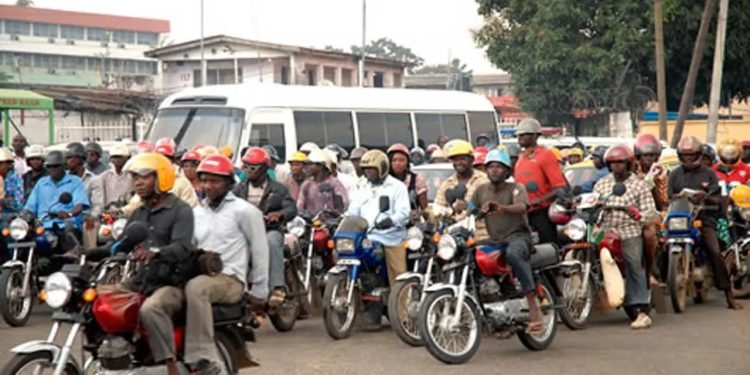By Hassan Osman Kargbo
The recent decision by the Sierra Leone Police (SLP) to ban commercial motorbikes, commonly known as “okadas,” from operating on major streets in Freetown has sparked widespread frustration and concern among citizens.
According to the Sierra Leone Police (SLP), the ban aims to reduce road accidents and ease traffic congestion. However, many residents in the city argue that it has created more problems than solutions, especially for commuters who rely on motorbike transport for their daily activities.
For many Freetown residents, commercial motorbikes are more than just a mode of transportation, they are a lifeline. With limited public transport options and overcrowded minibuses, okadas have long provided a fast and convenient way for people to get to work, school, and markets. The abrupt enforcement of the ban has left thousands of commuters stranded, forcing them to either walk long distances or wait for hours to board available vehicles.
Ibrahim Turay, an energetic businessman, expressed his frustration, stating that the ban has made life much more difficult for the ordinary citizen. ‘‘This transportation issue is affecting the people of Freetown. The police have banned the commercial riders who normally ease our movement, but they have not provided a practical alternative. The government is putting more burden on the people instead of making life easier for them,’’ he lamented.
Many citizens also believe that the law is being enforced selectively, favoring certain individuals while punishing others. Rose Williams, a market vendor, voiced her disappointment over what she described as unfair treatment. ‘‘The police have banned commercial riders, but private motorbikes and even some police officers are riding their bikes in the city without being arrested. Why are they allowed to do so while the common man suffers?’’ she questioned.
Williams’ concerns reflect a growing sentiment among residents that the government’s policies disproportionately affect the lower-income population. Commercial motorbike riders, many of whom are young men trying to earn an honest living, now face an uncertain future. Without their daily income, they are left struggling to provide for their families.
While the authorities argue that the ban is necessary to maintain law and order, many citizens believe that a more balanced approach should be considered. Instead of a blanket ban, they suggest regulating the sector more effectively to include measures such as licensing riders, enforcing helmet laws, and restricting access only in high-risk areas during peak hours.
Another possible solution is providing alternative means of transportation. If the government wants to reduce traffic congestion and accidents, investing in an efficient public transport system should be a priority. Without this, banning okadas only worsens the daily struggles of thousands of Freetown residents.
As the situation continues to unfold, social media has been flooded with messages of dissatisfaction. Many citizens are calling on the government to reconsider the ban or at least amend it to accommodate the realities of everyday life in the city.
For now, Freetown remains caught in a transportation crisis, with many hoping that their voices will be heard. The question remains: will the government and the Sierra Leone Police listen to the cries of the people, or will the ban remain in place, further complicating the daily lives of the city’s residents?










